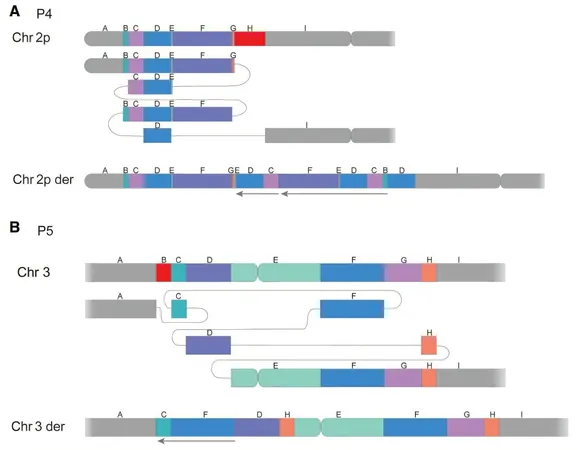
Surprising Link Between Cholesterol Fluctuations and Dementia Risk Unveiled in New Study
2024-11-15
Author: Daniel
Cholesterol Fluctuations and Dementia Risk
In a groundbreaking analysis of the ASPREE trial, researchers have discovered that significant changes in lipid measurements over the years may indicate an increased risk for dementia and cognitive decline among older adults. This compelling study sheds light on what could potentially be a "novel biomarker" for predicting cognitive health.
Research Insights
Dr. Zhen Zhou from Monash University, Melbourne, Australia, who is set to present these findings at the 2024 American Heart Association (AHA) Scientific Sessions, emphasized the importance of monitoring patients with considerable cholesterol fluctuations that are not influenced by medication. “These patients may warrant increased surveillance for not only dementia risk but also for other conditions associated with heightened dementia risk,” she stated.
The study’s preliminary findings suggest that the variability in cholesterol levels could be a key indicator of cognitive health in older adults. However, Dr. Zhou notes that further research is essential to fully uncover the biological mechanisms behind these observed correlations. For now, she advises older adults to continue following their healthcare providers' recommendations for cholesterol management.
More Variability Equals Greater Risk for Dementia
Dr. Fernando D. Testai from the University of Illinois Chicago added a broader context in a commentary on the study, noting that previous research has shown that fluctuations in various health parameters, such as blood pressure and glucose, have been linked to various diseases, particularly cardiovascular disorders. Yet, the cognitive implications of these fluctuations have only recently gained recognition.
The research included nearly 10,000 participants (median age of 73.9 years; majority female and white) from the ASPREE trial, all of whom were free from dementia at the study’s onset and underwent annual cholesterol assessments between 2010 and 2014. Over a median follow-up of almost six years after these assessments, a total of 509 individuals were diagnosed with dementia, while 1,760 experienced cognitive impairment without meeting the criteria for dementia (CIND).
Notably, those exhibiting the highest fluctuations in total cholesterol and LDL cholesterol were found to have an increased risk of developing dementia and CIND events. Specifically, the hazard ratios were 1.60 for total cholesterol and 1.48 for LDL cholesterol relative to the lowest quartiles. Additionally, variations in these lipids correlated with a more rapid decline in cognitive functions, including overall cognition, episodic memory, and psychomotor speed.
Dr. Zhou posited that cholesterol variability might be a more significant predictor of dementia risk than absolute cholesterol levels. It could reflect the body’s declining ability to maintain homeostasis, indicating a potential vulnerability to diseases such as dementia. Furthermore, significant fluctuations in cholesterol might destabilize atherosclerotic plaques, primarily comprised of LDL cholesterol, posing additional health risks.
Future Directions
As the research community looks to the future, Dr. Zhou advocates for further investigations into the relationship between cholesterol variability and dementia risk, seeking to clarify whether these fluctuations indicate a genuine risk factor, a precursor to cognitive decline, or serve as merely a biomarker of impending conditions.
This study marks an exciting development in our understanding of cognitive health as we age, potentially offering new avenues for prevention and intervention in the fight against dementia. The implications could reshape how healthcare professionals monitor and manage the risk of cognitive decline in aging populations. Stay tuned as more insights unfold in the coming months!


 Brasil (PT)
Brasil (PT)
 Canada (EN)
Canada (EN)
 Chile (ES)
Chile (ES)
 España (ES)
España (ES)
 France (FR)
France (FR)
 Hong Kong (EN)
Hong Kong (EN)
 Italia (IT)
Italia (IT)
 日本 (JA)
日本 (JA)
 Magyarország (HU)
Magyarország (HU)
 Norge (NO)
Norge (NO)
 Polska (PL)
Polska (PL)
 Schweiz (DE)
Schweiz (DE)
 Singapore (EN)
Singapore (EN)
 Sverige (SV)
Sverige (SV)
 Suomi (FI)
Suomi (FI)
 Türkiye (TR)
Türkiye (TR)